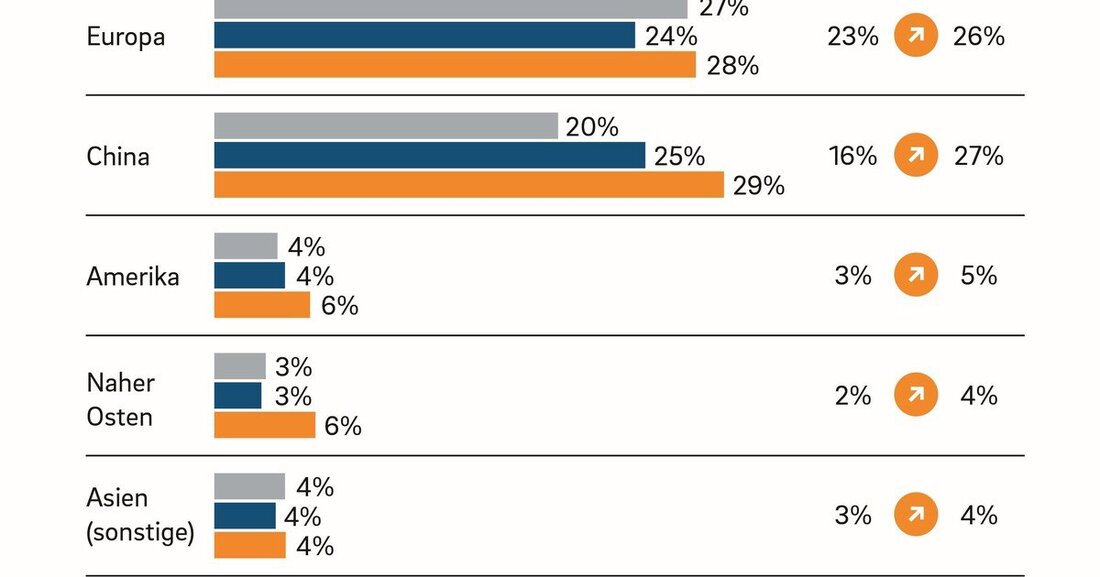World record for electric car sales
The Roland Berger “EV Charging Index 2023” registered a global sales record for electric vehicles in the previous year.

World record for electric car sales
After the share of electric cars in global new sales fell slightly in the first half of 2022, it rose again in the second half of the year due, among other things, to lower electricity prices and reached a new record of 16 percent at the end of 2022. In the core market of Germany, which is important for the Austrian automotive industry, the share rose to 37 percent. The expansion of the charging infrastructure also made good progress in 2022. Almost 22 percent of public charging points worldwide are now fast charging stations. Roland Berger’s “EV Charging Index 2023” provides these and other results, which is based on extensive industry interviews and a survey of 16,000 participants from Europe, Asia, North and South America and the Middle East. "The global market for electric vehicles and charging stations is currently growing very quickly. Awareness of sustainable mobility is increasing, as is the range of products offered by manufacturers," reports Gundula Pally, Managing Partner Roland Berger Austria. “For further progress in climate-friendly mobility as part of the energy transition, it is now important that the public charging infrastructure keeps pace with the growing number of electric cars.”
In the ranking of Roland Berger’s “EV Charging Index 2023”, China once again takes the top position. Germany was able to narrow the gap in 2022 and takes second place. The USA, Netherlands and Norway follow in the top 5. All top 5 countries have made great progress in expanding the charging infrastructure, even if neighboring Germany, with currently 26 electric cars per public charging point, is still lagging behind significantly compared to the global average of 16. The expansion of the necessary infrastructure is an indispensable driver of e-mobility; after all, 90 percent of e-car owners stated in the surveys that they depend on public charging stations. More than 30 percent use public charging stations at least three times a week. However, the most popular charging location remains the workplace.
The charging infrastructure market is dynamic, with a variety of companies trying to grab a share in both the upstream and downstream parts of the business: automakers, infrastructure providers, utilities, renewable energy storage manufacturers, tech giants and even oil and gas companies. The business models are no longer limited to the installation and operation of charging points and the sale of energy. Rather, new business areas are emerging in areas such as energy management, vehicle-to-grid transfer or the marketing of balancing energy. "A new energy ecosystem is developing with the charging infrastructure. Automobile manufacturers play an important role in this because they generate demand by selling e-cars and, with a view to further development, it is crucial not only to set up charging stations, but to integrate them into an overall system of e-mobility and renewable energies," explains Gundula Pally. "Innovative solutions such as smart charging and bi-directional charging enable great potential for further progress. However, these can only be achieved in close cooperation between OEMs and energy companies and others “We need to implement it sustainably and efficiently with industry players.”

 Suche
Suche
 Mein Konto
Mein Konto